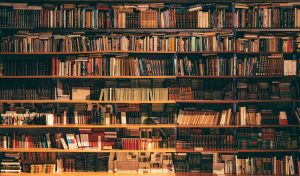Australia-China and education reading, research and viewing highlights from 2021
To recap the year, we asked network members for some recommended reading in the Australia-China and education space, including their own research. Here are their recommendations:
 Jeffrey Gil
Jeffrey Gil
Lo Bianco, J. (2021) Australia needs to make languages compulsory, Melbourne Asia Review
An informative reflection on Asian language education policy in Australia, including how it’s been affected by Australia-China relations.
Weinmann, M., Slavich, S. & Neilsen, R. (2021). Multiculturalism and the “broken” discourses of Chinese language education in The future of multiculturalism in turbulent times (Edited by C. Halse and K. Kennedy)
A much needed exploration and analysis of the conflicting and competing perspectives on Chinese language education in Australia and their implications for multilingualism and multiculturalism.
Horsley, J.P (2021) It’s time for a new policy on Confucius institutes, Brookings Institute
A thought-provoking piece on how the American government and universities should deal with Confucius Institutes which is also relevant to the situation in Australia.
Wen Xu
Xu, W. (2021). Reflexivity and cross-cultural education: a Foucauldian framework for becoming an ethical teacher-researcher. Asia Pacific Journal of Education. https://doi.org/10.1007/s12564-021-09723-8
This paper teases out how I, as a Chinese and a transnational pre-service teacher, navigate the Australian education context.
Xu, W. & Knijnik. (2021). Critical Chinese as an Additional Language education in Australia: A journey to voices, courage and hope. British Educational Research Journal. https://doi.org/10.1002/berj.3747
This paper frames Chinese as a Foreign Language education in Australia as a democratic space, which contributes to students’ consciousness and collective transformation.
Xu, W. & Stahl, G. (2021) Working-class girls’ construction of learner identities and aspirations through engagement in Chinese language education in Australia. Discourse. https://doi.org/10.1080/01596306.2021.1918061
This paper glimpses the ways in which the pedagogic practices of Chinese as a Foreign Language inform Australian working-class girls’ understandings of their education and future – specifically their academic aspirations, career choices, and dreams of wealth.
Rebecca Cairns
Reading the China Dream
This blog posts translations of the writings of establishment intellectuals in China and is managed by historian David Ownby of the University of Montreal. These two posts in particular provide insights into educational involution in China: Liu Yu on the Arms Race in Chinese Education and Yang Xiong on Educational Involution
Human Rights Watch (2021). “They Don’t Understand the Fear We Have”: How China’s Long Reach of Repression Undermines Academic Freedom at Australia’s Universities.
The findings of this report have significant implications for all Australian universities and are relevant to the work of this network
Chinese Australian History Seminar Series, Institute for Australian and Chinese Arts and Culture Western Sydney University: Although these seminars are not directly related to Australia China and higher education, as a history educator, I think it is always good to keep deepening one’s understanding of Australian Chinese history.
Michiko Weinmann
Roche, G. (2021). Global civil society must promote linguistic rights for China’s Indigenous peoples. Melbourne Asia Review.
This blog post discusses minoritised languages in China and language rights
 Blog of the Network for Research into Chinese Education Mobilities (NRCEM) – a real treasure trove.
Blog of the Network for Research into Chinese Education Mobilities (NRCEM) – a real treasure trove.
Zhao, I. (2021) China begins crackdown on private tutoring in apparent bid to ease pressure, boost birth rate, ABC News.
Iris was one of the ABC journalists on the panel for our end of year seminar and her article looks at the effects of the pressure of the gaokao and the intentions of new CPC education policy to eliminate private tutoring.
Mulvey, B. (2021). Navigating global regimes of mobility: the onward mobility of African international students in China, Lingan University.
Anna Kent
Kent, A. (2021) Resilient communities: History of international education in Australia. IEAA Blog.
After the Australian International Education Conference (AIEC) I wrote a piece about the resilience of the international education community in Australia. There are some other great pieces on the IEAA Blog including this one by Angela Lehman – China-Australia tensions and the return of Chinese international students.
Book Review – Stranded Nation: White Australia in an Asian Region by David Walker (for the Journal of Australian Studies.)
Cox, James. (2021) Violence in Honiara – saying ‘Because China’ stops us from looking deeper. Peacifica.
I have been really interested in how the Australian government’s assumptions and misunderstandings about both China and the Pacific have been creating diplomatic issues.
Yuhan/Sophia Qi
These are three pieces of news that I have recently noticed that I personally view reflect the relationship between China and Australia and the impact of the development of the relationship between the two countries on higher education.
China says Australia, UK and US will ‘pay price’ for Winter Olympics snub
The tension between Australia and China continues; there is constant friction on many international issues. The Chinese foreign Ministry’s response to Australia’s Winter Olympics snub reflects the continuing lack of improvement in relations between the two countries.
Soaring fees in Australian universities add to international student woes
The move of Australian universities to increase tuition fees for overseas students has increased the unfavorable factors for Chinese students to choose to study in Australia.
Asking uni chiefs to counter hostile Chinese interference in Australian Universities is a tall order: China expert
Some different perspectives on how universities might tackle foreign interference on campus.
Looking for some fiction?
 Paige Clark’s bio describes her as Chinese/American/Australian writer, who lives in Melbourne and her stories in She is Haunted (2021) are said to offer “piercing insights into transnational Asian identity, intergenerational trauma and grief, the dynamics of mother-daughter relationships, the inexplicable oddities of female friendship, and the love of a good dog” (Allen & Unwin, 2021).
Paige Clark’s bio describes her as Chinese/American/Australian writer, who lives in Melbourne and her stories in She is Haunted (2021) are said to offer “piercing insights into transnational Asian identity, intergenerational trauma and grief, the dynamics of mother-daughter relationships, the inexplicable oddities of female friendship, and the love of a good dog” (Allen & Unwin, 2021).
Sinopticon 2021: A Celebration of Chinese Science Fiction brings together a collection of speculative fiction from the late 20th century to the present and edited and translated by Xueting Christine Ni
Dry Milk (2019) written by Huo Yan and translated by Duncan M. Campbell is a novella from New Zealand, described as “a stark portrait of social isolation, and of the experience of some of those who left China after the Cultural Revolution” (Giramondo, 2021)
Strange Beasts of China (2006/2021), by Yan Ge and translated by Jeremy Tiang, is about the fabled creatures living alongside people in the fictional city of Yong’an: “Part detective story, part metaphysical enquiry, Strange Beasts addresses existential questions of identity, being, love and morality with whimsy and grace” (Tilted Axis Press, 2021).
Xiaolu Guo’s A lover’s discourse (2021) centres on a Chinese PhD student in London and is described as “a funny and charming new novel from Xiaolu Guo about love, language, displacement and finding our place in the world” (Penguin, 2021).
Land of Big Numbers (2021) is a collection of short stories by Te-Ping Chen that explores themes of flight and freedom.
Inspired by Asian-diasporic feminist writers, Vociferate | 詠 is a collection of poetry from Emily Sun.